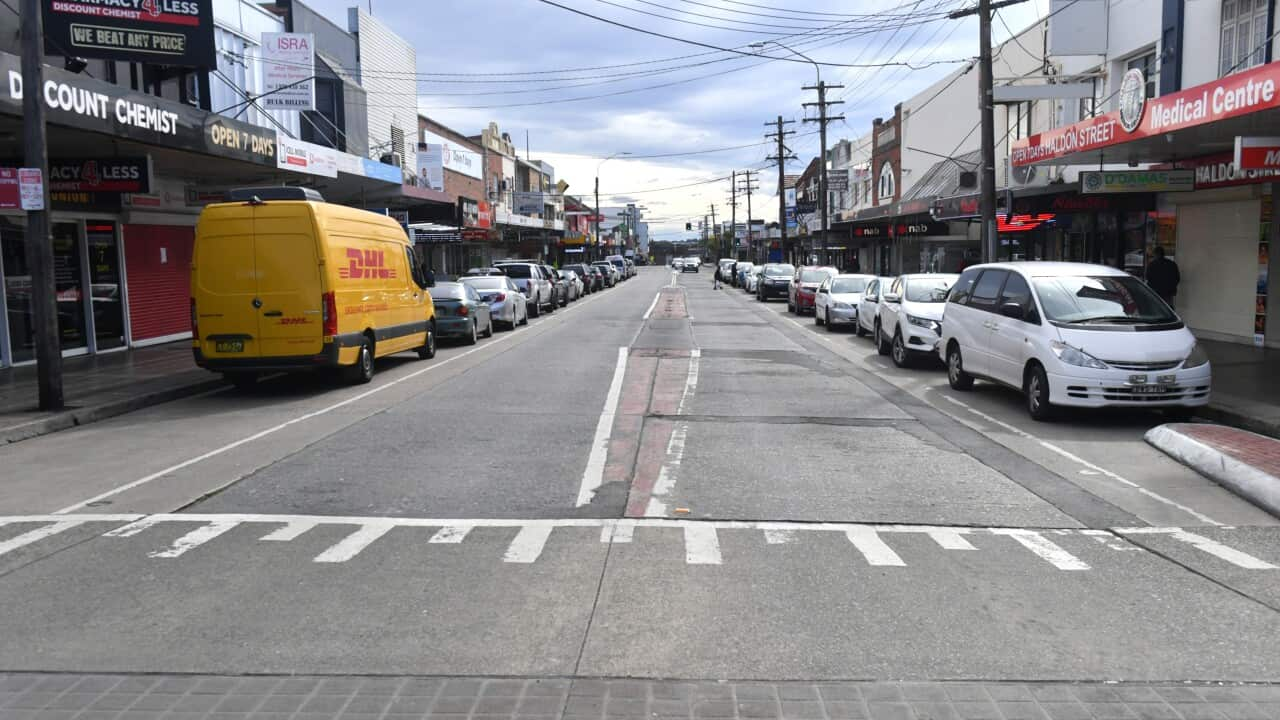For Jordanian-Australian restaurant owner Anas Almazahre, the strict lockdowns imposed on southwest Sydney have been devastating on a number of fronts.
He tells SBS Arabic24 that while restaurants across the city have been operating during the lockdown through takeaway services, his restaurant in Liverpool, Sahrati, has had to close its doors because restrictions prevent him from entering the suburb in southwest Sydney.
"Life has become difficult, financially, socially and emotionally,” he says. “We've been affected from all sides."
Sydney’s tight lockdown looks set to be extended beyond July 30, as health authorities work to contain the spread of COVID-19 throughout the city. On Tuesday, .
On Tuesday, .

Restaurant owner Anas Almazahre and his now empty restaurant in Liverpool, Sydney. Source: Anas Almazahre
Of the new cases, 65 are from southwest Sydney while 54 are from western Sydney. Both areas have been under tighter restrictions as a result of the growing clusters.
While essential workers are allowed to travel for work within a 10km radius elsewhere in Greater Sydney, residents living in southwest and western areas, including Liverpool, Fairfield, Canterbury-Bankstown and Blacktown cannot, unless they're emergency service or healthcare workers.
Those who do must take a COVID-19 test every three days, leading to long queues at local testing centres.
Mr Almazahre says his family is now living off their savings due to the restaurant closure and he predicts that he won't be able to “weather the storm” beyond September.
"I have 16 employees so I'm not alone. These are 16 families that depend on this restaurant for their main income."
He says he's had to continue paying employees’ salaries because they have nowhere else to turn.
"Life expenses never stop, and we all know Australia is an expensive country and incomes barely make ends meet for some people, even under normal circumstances.”
Mr Almazahre says his family has begun rationing food and trying to defer whatever bank payments they can for the time being.
"We're using what we have at home and hoping we can hold out until we survive this phase.”
He says so far, he hasn't received financial support from the state or federal governments, but he remains hopeful that he will soon be eligible.
"They've helped us before around the first lockdown and I'm sure they'll help us again".
As part of restrictions imposed across Greater Sydney in mid-July, trade workers have had to put down their tools as all construction projects and maintenance works have stopped, including home repairs.
Charlie Ibrahim owns a construction supply company that operates in southwest Sydney.
He says that while government support packages are welcome, for many in the construction sector they are not enough.
"These support packages don't consider the size of the damage caused to the construction sector.
“A company that invests $50 million will get $15,000 compensation. This means it's not worth the time to apply for the support package.” The shutting down of construction activities was abrupt and didn't give companies enough time to prepare, he says.
The shutting down of construction activities was abrupt and didn't give companies enough time to prepare, he says.

Members of the public line up at a pop-up testing clinic in the southwest suburb of Lakemba in Sydney. Source: AAP
"We were surprised Saturday morning with the decision. We were following the restrictions and every workshop would shut down for three days and undergo deep cleaning if any worker contracted the virus.
"My company provides for 400 families. You can multiply that number by the minimum wage for every employee if you want to calculate the financial damage on incomes alone."
SBS is committed to informing Australia’s multilingual communities about the latest coronavirus developments. Local and international news and information about COVID-19 and vaccines is available at the in more than 60 languages.





